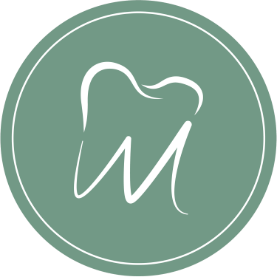
What to Expect at Your Cleaning Visit
The dental hygienist uses a water spray and specialized instruments to get rid of plaque and tartar around your gum line, as well as in between your teeth. The hygienist will then polish and floss your teeth to help remove any remaining staining and plaque.
Finally the dentist will come in to check for cavities and look at the health of your teeth. Cleanings are scheduled for 2, 3, or 4 times a year depending on the health of your gums.
Why Are Teeth Cleanings Important?
How Do We Remove Tartar and Plaque During a Dental Cleaning?
The human mouth is home to many types of microorganisms, most of which are bacteria. These bacteria feed on food particles, especially starches and sugars, left in the mouth.
The bacteria form a sticky film on the surface of teeth known as plaque. After eating, the bacteria produce acidic waste that can begin to damage the enamel (the outer layer of the tooth) in as little as 20 minutes. This acid wears down the enamel, leading to tooth decay and other dental issues.
If plaque remains on the teeth for too long, it hardens into tartar. Tartar becomes so tough that it forms an unsightly outer layer on the teeth, completely covering or replacing the enamel. Once tartar has formed, it is difficult to remove, even with regular brushing or teeth whitening treatments. Plaque continues to build on top of the tartar, further coating the teeth and irritating the gums. If left untreated, this can eventually lead to gum disease and tooth loss.
Professional Teeth Cleaning
Professional teeth cleaning is a vital part of comprehensive dental care, offering benefits that go beyond routine brushing and flossing. Performed by trained dental hygienists, this procedure plays a critical role in maintaining optimal oral health and preventing dental issues.
Despite regular brushing and flossing, the mouth remains a dynamic environment, with bacteria and food particles constantly interacting. Over time, these substances can accumulate, leading to cavities, gum disease, and bad breath. Professional teeth cleaning helps eliminate these problems by providing a deeper level of cleaning.
The process begins with a visual examination to identify any concerns like cavities or gum disease. A key part of the cleaning involves removing plaque and tartar. Plaque is a sticky bacterial film that can harden into tartar, which is difficult to remove with regular brushing. Hygienists use specialized tools to carefully remove these deposits, especially from hard-to-reach areas.
Polishing is another important step. Using a gritty toothpaste and a high-powered toothbrush, hygienists clean and polish the teeth, removing surface stains and leaving the teeth feeling smooth and refreshed.
Flossing is also an essential part of professional cleaning. Hygienists floss between the teeth and along the gumline, removing any debris and plaque that brushing alone might miss. This helps maintain the health of the interdental spaces, which can be challenging to clean effectively at home.
In some cases, a fluoride treatment is applied to strengthen tooth enamel and help prevent cavities, particularly for those at higher risk of decay.
Professional teeth cleaning also serves as an educational opportunity. Dental hygienists offer advice on effective brushing and flossing techniques and recommend products that suit individual oral health needs.
Regular teeth cleanings are crucial for preventing gum disease, tooth decay, and bad breath. Cleaning also helps prevent the buildup of plaque and tartar, ensuring the structural integrity of your teeth. It’s recommended to have a professional cleaning every six months, but some individuals may need more frequent cleanings based on their dental history.
In conclusion, professional teeth cleaning is an essential practice for maintaining good oral health. It prevents gum disease, cavities, and bad breath, while also contributing to a brighter smile. When combined with regular at-home oral care and a healthy diet, professional cleaning helps ensure a lifetime of healthy smiles.

